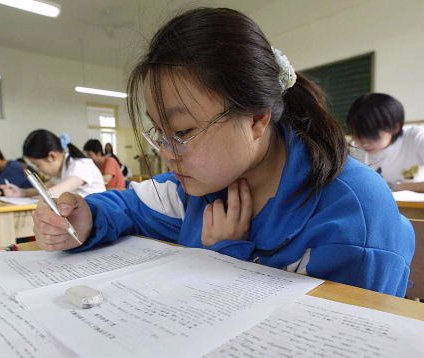 |
||||
|
Education and Feminism
Empowering Minds: The History of Women's Education and its Connection to FeminismThe history of women's education is deeply intertwined with the feminist movement, as access to education has been a critical aspect of women's empowerment and the pursuit of gender equality. This article explores the historical journey of women's education, from its early struggles to the achievements of feminist activists, highlighting the transformative impact education has had on the feminist movement. Early Struggles for Education: In many societies, women were historically denied formal education, being relegated to domestic roles and denied opportunities for intellectual growth. However, determined women throughout history challenged these norms. In the 19th century, pioneers like Mary Wollstonecraft argued for women's education as a means to challenge patriarchal structures and promote women's rights. First Wave Feminism and Educational Reform: During the first wave of feminism in the 19th and early 20th centuries, women fought for access to education as a fundamental right. Activists such as Emily Davies in the UK and Susan B. Anthony in the United States played pivotal roles in advocating for women's educational opportunities. Their efforts led to the establishment of women's colleges, the admission of women to universities, and the expansion of educational opportunities beyond traditional gender roles. The Suffragette Movement and Education: The suffragette movement, which fought for women's right to vote, recognized the vital role of education in empowering women and fostering social change. Suffragettes emphasized the need for women to have access to education to develop critical thinking skills, articulate their political beliefs, and advocate for their rights. Educational institutions became hotbeds of feminist activism and intellectual exchange, fostering a sense of solidarity and collective action. Second Wave Feminism and Education Reform: The second wave of feminism in the 1960s and 1970s renewed the call for educational reforms. Feminist activists pushed for equal opportunities in education, challenging gender biases in curricula, textbooks, and school policies. The movement aimed to dismantle societal expectations and stereotypes that limited women's career choices and perpetuated gender inequalities. Women's Studies and Feminist Academia: During the second wave, the establishment of Women's Studies programs in universities became instrumental in bringing feminist scholarship and analysis into academic spaces. Women's Studies departments provided a platform for the study of women's history, gender roles, and feminist theory. This academic field contributed to the development of feminist pedagogy and nurtured a new generation of feminist scholars and activists. Intersectionality and Inclusive Education: As feminism evolved, intersectionality became a central tenet, emphasizing the interconnections between gender, race, class, sexuality, and other social identities. Feminist activists recognized the importance of inclusive education that addressed the unique experiences and challenges faced by marginalized communities. This led to the emergence of intersectional feminist scholarship and the demand for diverse representation within educational institutions. Continuing Struggles and Progress: While significant strides have been made in women's education, challenges and disparities persist. Issues such as gender-based violence, unequal access to educational resources, and the underrepresentation of women in certain fields of study and leadership positions remain areas of concern. Feminist activists and educators continue to push for systemic changes, including policies that address these disparities and create a more inclusive educational system. Global Perspectives on Women's Education: The struggle for women's education extends beyond Western societies. In many parts of the world, women and girls still face significant barriers to accessing education due to cultural, economic, and political factors. Feminist movements globally advocate for the rights of women and girls to education, highlighting the transformative power it has in breaking the cycle of poverty, empowering individuals, and fostering social progress. Education as a Tool for Empowerment: Women's education is recognized as a catalyst for individual empowerment, economic independence, and social change. Education equips women with the knowledge and skills to challenge gender norms, assert their rights, and contribute to their communities. It fosters critical thinking, self-confidence, and the ability to participate in decision-making processes at all levels of society. The Intersection of Women's Education and Feminism Today: In the contemporary feminist movement, women's education remains a central focus. Feminist activists continue to advocate for equal access to education, the elimination of gender biases in curricula and teaching materials, and the promotion of diverse perspectives in educational spaces. Efforts are also directed towards addressing the underrepresentation of women in STEM fields and increasing women's leadership in academia. Conclusion: The history of women's education is intricately woven into the tapestry of the feminist movement. From the early struggles for access to education to the contemporary fight for equal opportunities and inclusive curricula, education has been a powerful tool for women's empowerment and the pursuit of gender equality. As feminists continue to push for systemic changes, education remains a vital pathway to transforming societal norms, dismantling gender biases, and nurturing the next generation of feminist thinkers, scholars, and activists.
|
|
|||
|
|
||||
Careers, Education & FeminismWhen choosing an education and a career, women who go down the path of becoming a "working girl" make some interesting choices. Should they try and tackle a career and children at the same time they will have to make choices between traditional women's work and more male dominated careers like engineering. The only real challenge is having the guts to do it.
Why Feminists should buy Stocks and Learn How to Invest
|
||||
 |
Health Matters - Historical Feminism - International Feminism - Lesbian Feminism - Male Feminism - Modern Feminism - Musical Feminism Philosophy of Feminism - Postfeminism - Pro-Choice Feminism - Quotes by Feminists - Religion and Feminism - Sports and Feminism |
 |
||
